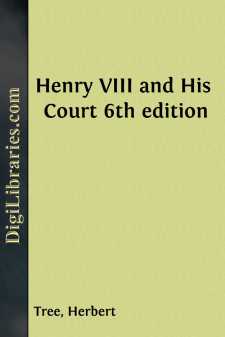Categories
- Antiques & Collectibles 13
- Architecture 36
- Art 48
- Bibles 22
- Biography & Autobiography 816
- Body, Mind & Spirit 145
- Business & Economics 28
- Children's Books 17
- Children's Fiction 14
- Computers 4
- Cooking 94
- Crafts & Hobbies 4
- Drama 346
- Education 58
- Family & Relationships 59
- Fiction 11834
- Foreign Language Study 3
- Games 19
- Gardening 17
- Health & Fitness 34
- History 1378
- House & Home 1
- Humor 147
- Juvenile Fiction 1873
- Juvenile Nonfiction 202
- Language Arts & Disciplines 89
- Law 16
- Literary Collections 686
- Literary Criticism 179
- Mathematics 13
- Medical 41
- Music 40
- Nature 179
- Non-Classifiable 1768
- Performing Arts 7
- Periodicals 1453
- Philosophy 66
- Photography 2
- Poetry 897
- Political Science 203
- Psychology 45
- Reference 154
- Religion 516
- Science 126
- Self-Help 85
- Social Science 82
- Sports & Recreation 34
- Study Aids 3
- Technology & Engineering 59
- Transportation 23
- Travel 463
- True Crime 29
Our website is made possible by displaying online advertisements to our visitors.
Please consider supporting us by disabling your ad blocker.
Henry VIII and His Court 6th edition
by: Herbert Tree
Description:
Excerpt
KING HENRY VIII
His Character
Holbein has drawn the character and written the history of Henry on the canvas of his great picture. Masterful, cruel, crafty, merciless, courageous, sensual, through-seeing, humorous, mean, matter of fact, worldly-wise, and of indomitable will, Henry the Eighth is perhaps the most outstanding figure in English history. The reason is not far to seek. The genial adventurer with sporting tendencies and large-hearted proclivities is always popular with the mob, and “Bluff King Hal,” as he was called, was of the eternal type adored by the people. He had a certain outward and inward affinity with Nero. Like Nero, he was corpulent; like Nero, he was red-haired; like Nero, he sang and poetised; like Nero, he was a lover of horsemanship, a master of the arts and the slave of his passions. If his private vices were great, his public virtues were no less considerable. He had the ineffable quality called charm, and the appearance of good-nature which captivated all who came within the orbit of his radiant personality. He was the “beau garçon,” endearing himself to all women by his compelling and conquering manhood. Henry was every inch a man, but he was no gentleman. He chucked even Justice under the chin, and Justice winked her blind eye.
It is extraordinary that in spite of his brutality, both Katharine and Anne Boleyn spoke of him as a model of kindness. This cannot be accounted for alone by that divinity which doth hedge a king.
There is, above all, in the face of Henry, as depicted by Holbein, that look of impenetrable mystery which was the background of his character. Many royal men have this strange quality; with some it is inborn, with others it is assumed. Of Henry, Cavendish,
a contemporary, records the following saying: “Three may keep counsel, if two be away; and if I thought my cap knew my counsel,I would throw it in the fire and burn it.” Referring to this passage, Brewer says, “Never had the King spoke a truer word or described himself more accurately. Few would have thought that, under so careless and splendid an exterior—the very ideal of bluff, open-hearted good humour and frankness—there lay a watchful and secret mind that marked what was going on without seeming to mark it; kept its own counsel until it was time to strike, and then struck as suddenly and remorselessly as a beast of prey. It was strange to witness so much subtlety combined with so much strength.”There was something baffling and terrifying in the mysterious bonhomie of the King. In spite of Cæsar’s dictum, it is the fat enemy who is to be feared; a thin villain is more easily seen through.
His Ancestry
Henry’s antecedents were far from glorious. The Tudors were a Welsh family of somewhat humble stock. Henry VII.’s great-grandfather was butler or steward to the Bishop of Bangor, whose son, Owen Tudor, coming to London, obtained a clerkship of the Wardrobe to Henry V.’s Queen, Catherine of France. Within a few years of Henry’s death, the widowed Queen and her clerk of the wardrobe were secretly living together as man and wife....


